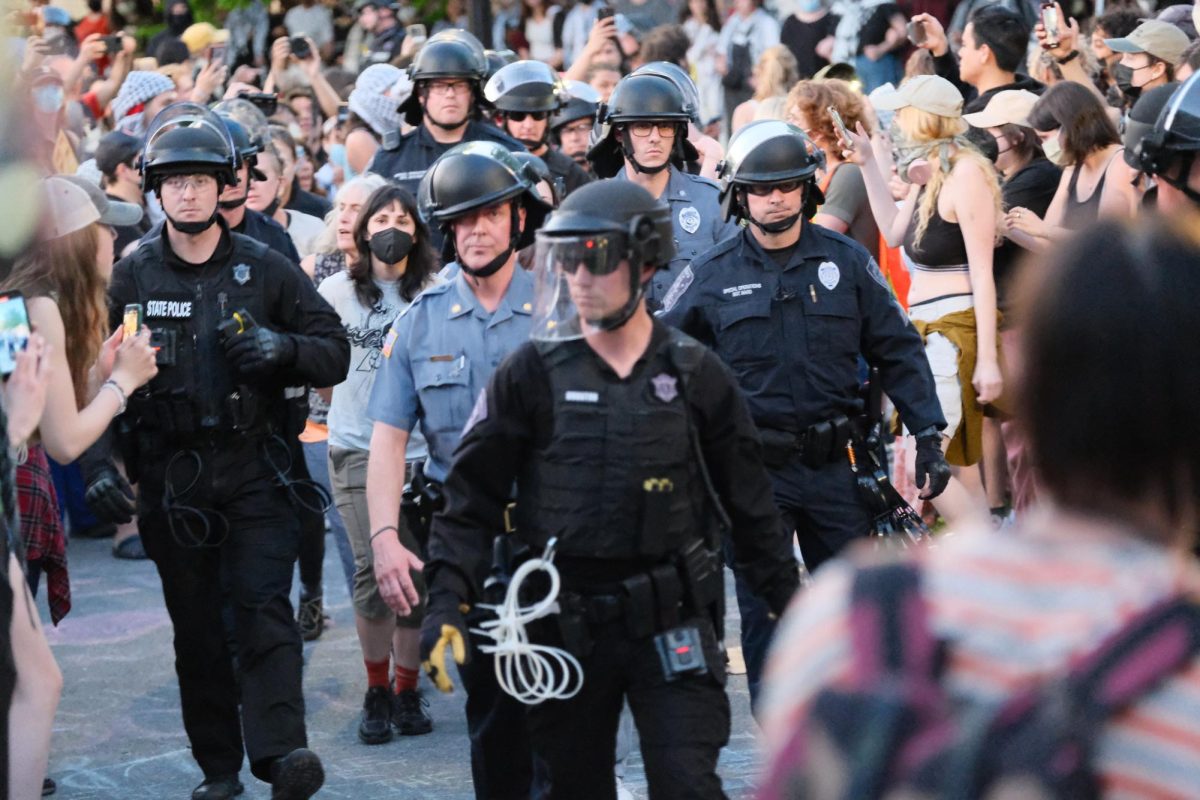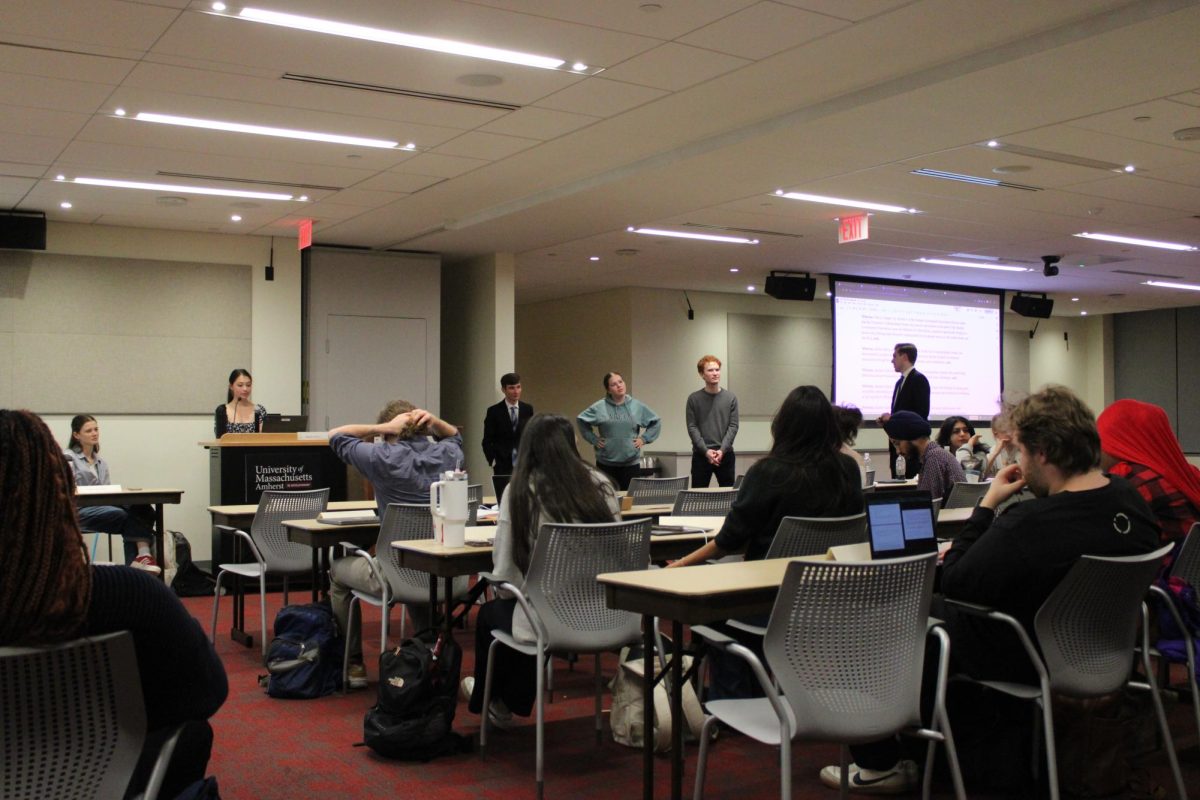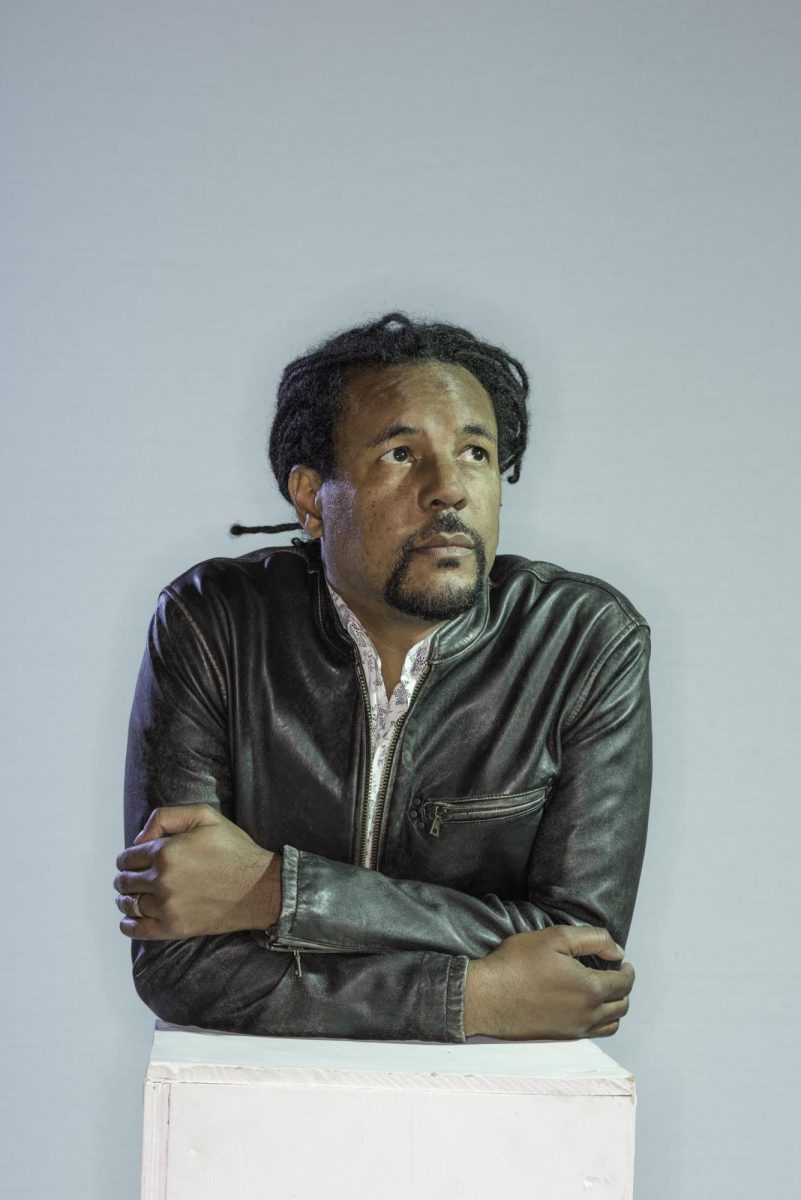
Discussing the impact of imprisonment on felons after their release, professor of law at Northeastern University Michael Meltsner, spoke this past Thursday at the Campus Center.
Meltsner headlined the 13th Annual Dean Alfange Jr. Lecture. The annual lecture serves to honor Alfange, a former professor of political science at the University of Massachusetts from 1967 to 1999.
Meltsner’s speech entitled “Degradation Ceremonies: Constitutional and Statutory Limits of the Punishment After Punishment” focused on the lack of opportunities those who have been released from prison face after incarceration.
“In doing my research for [Muhammad] Ali, I found how conviction can ruin opportunities for life,” Meltsner said. “Convictions can result in forfeiture of businesses and houses, being denied welfare, and can affect deportation. Following convictions of not just felonies but even misdemeanors can cause collateral consequences.”
He also spoke about the disproportionate number of minorities incarcerated and the systemic racism this represents for our country.
“One in six African American young men will find themselves in prison. There needs to be acknowledgement that race and ethnicity has a huge impact on whether an ex-offender will get hired.” Meltsner said.
He continued, “We have a great deal of evidence that getting ex-offenders jobs is beneficial. There are so many structures and players today that seem to ignore evidence, it’s as if evidence is not the way we should make decisions.”
When asked how he thinks we might be able to somewhat resolve the issue, Meltsner acknowledged the systemic racial inequality deeply ingrained in our justice system, but added that he felt public focus on the topic could help to move along reform.
“Public cases and Supreme Court cases often shift public opinion. Take for example, gay rights legislation. I think the issue is ripe for the same treatment,” Meltsner concluded before opening the floor to questions from the audience.
After the speech, director of legal studies at the University Paul Collins said, “In a talk about punishment after punishment within the legal system, the obvious racial undertones were not surprising.”
When Meltsner was asked after the speech whether he felt prison reform under President Donald Trump was doubtful, Meltsner answered, “Yes. Every action taken by his attorney general has suggested a return to more punitive policies.”
Dean Alfange Jr., for whom the lecture is named, was also in attendance. “It was a fascinating speech, I feel so lucky that we have a program that brings in scholars of such high caliber and quality like Mr. Meltsner,” Alfange said.
While at UMass, Alfange served as the Dean of the College of Arts and Sciences from 1971 to 1975, and acting provost in 1975. Meltsner served as counsel in many 1960s civil rights cases, including representing Muhammed Ali in the court case which gave him back his right to box. In addition, he was first assistant counsel to the NAACP Legal Defense Fund in the 60s as well.
Crystal Paul, director of administration and research for the political science department at UMass, helped to organize the event and felt it was a great success: “We do event planning in conjunction with advisory board meetings. It takes months of planning to secure a speaker as we are already working on next year’s speaker.”
Jacqueline Hayes is a Collegian correspondent and can be reached at [email protected].



















Nitzakhon • Oct 2, 2017 at 12:33 pm
So much of this started when Democrats passed the “Great Society” and removed fathers from black families.
The Welfare State’s Legacy
http://jewishworldreview.com/cols/williams092017.php3
Quote: ”
According to the 1938 Encyclopaedia of the Social Sciences, that year 11 percent of black children were born to unwed mothers. Today about 75 percent of black children are born to unwed mothers. Is that supposed to be a delayed response to the legacy of slavery? The bottom line is that the black family was stronger the first 100 years after slavery than during what will be the second 100 years.
At one time, almost all black families were poor, regardless of whether one or both parents were present. Today roughly 30 percent of blacks are poor. However, two-parent black families are rarely poor. Only 8 percent of black married-couple families live in poverty. Among black families in which both the husband and wife work full time, the poverty rate is under 5 percent. Poverty in black families headed by single women is 37 percent. The undeniable truth is that neither slavery nor Jim Crow nor the harshest racism has decimated the black family the way the welfare state has.”
‘Uncle Tom’ Is More Destructive Than the ‘N-Word’
https://patriotpost.us/opinion/51406
Quote: “The real traitors are those who refuse to look at the obvious connection between the rise of fatherless households in the black community and the welfare state. In 1965, 25 percent of black kids were born outside of wedlock. That figure today is 71 percent. Today 29 percent of white kids are born outside of wedlock. Yet we do not have a serious debate about the causal connection between the welfare state and the No. 1 domestic problem in the country — the rise of fatherless households. But to even raise this issue makes a black person a “traitor” who is “blaming the victim”?”